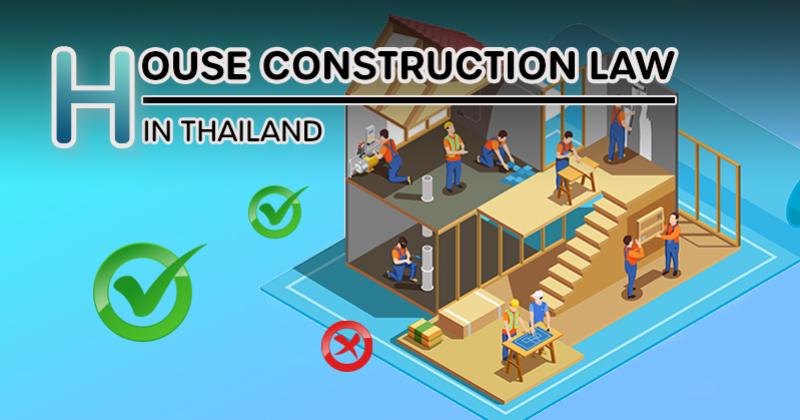
สร้างเมื่อ : 22 ส.ค. 2566
แก้ไขล่าสุดเมื่อ : 23 ส.ค. 2566
ขั้นตอนจดทะเบียนบริษัท
ในปัจจุบันหลายคนหันมาเริ่มทำธุรกิจของตัวเอง ซึ่งธุรกิจนั้นอาจเป็นธุรกิจเล็ก ๆ ในครอบครัวหรือแม้แต่ธุรกิจที่ขยับขยายจนกลายมาเป็นบริษัท แต่เมื่อเปิดบริษัทของตัวเองแล้ว “การจดทะเบียนบริษัท” ก็เป็นสิ่งสำคัญที่ตามมาอย่างเลี่ยงไม่ได้
การจดทะเบียนบริษัทมีกี่ประเภท
การจดทะเบียนบริษัทแบ่งออกได้ 2 ประเภท ซึ่งอ้างอิงตามเจ้าของบริษัทที่จะดำเนินการจัดตั้งบริษัทร่วมกัน ได้แก่ แบบทะเบียนพาณิชย์หรือบุคคลธรรมดากับแบบทะเบียนนิติบุคคล
สำหรับใครที่สงสัยว่าสามารถจดทะเบียนบริษัท 2 คนได้ไหม คำตอบคือ โดยปกติแล้วการจดทะเบียนแบบห้างหุ้นส่วนสามารถทำได้ และตอนนี้การจดทะเบียนแบบบริษัทจำกัดก็สามารถทำได้เช่นกันด้วย เนื่องจากมีกฎหมายข้อยกเว้นออกมาตั้งแต่วันที่ 7 กุมภาพันธ์ พ.ศ. 2566 เป็นต้นไป ว่าสามารถจดทะเบียนบริษัทโดยมีผู้เริ่มก่อตั้งตั้งแต่ 2 คนขึ้นไปได้
1.ประเภททะเบียนพาณิชย์
การจดทะเบียนบริษัทแบบทะเบียนพาณิชย์หรือบุคคลธรรมดา คือ การเปิดบริษัทคนเดียว เจ้าของกิจการเพียงคนเดียวนั่นเอง การจดทะเบียนแบบนี้เหมาะกับธุรกิจขนาดเล็กที่มีมูลค่าไม่สูงมาก เจ้าของกิจการทำงานเพียงคนเดียวได้ ไม่มีพนักงานมีข้อดีคือสามารถทำธุรกิจได้อิสระมากกว่าแบบนิติบุคคล ได้กำไรเต็มที่ ไม่ต้องทำบัญชียื่นส่งงบแต่ก็มีข้อเสียเช่นกันคือธุรกิจอาจดูไม่น่าเชื่อถือในระยะยาว เข้าถึงสินเชื่อการเงินได้ยาก เสียภาษีเงินได้มากกว่าการจดทะเบียนนิติบุคคล และเจ้าของกิจการจะต้องรับผิดชอบภาระหนี้สินจากกิจการเองทั้งหมดด้วย
การทะเบียนพาณิชย์ (บุคคลธรรมดา) เหมาะกับใคร
2.ประเภททะเบียนนิติบุคคล
การจดทะเบียนบริษัทแบบทะเบียนนิติบุคคล คือ การเปิดบริษัทที่มีเจ้าของกิจการตั้งแต่ 2 คนขึ้นไป การดำเนินธุรกิจทุกอย่างจะต้องผ่านความเห็นชอบจากเจ้าของกิจการทุกคนแต่ออกมาในนามของบริษัท การจดทะเบียนบริษัทประเภทนี้ทำให้บริษัทมีตัวตนทางกฎหมายชัดเจน การดำเนินการใดๆ จะออกมาในนามของบริษัท เหมาะกับธุรกิจที่เติบโตในระดับหนึ่ง ธุรกิจ SME ธุรกิจขนาดกลางไปจนถึงธุรกิจขนาดใหญ่
ขั้นตอนการจดทะเบียนบริษัท
การจดทะเบียนบริษัทเป็นสิ่งสำคัญที่ควรทำ หากกิจการของคุณเริ่มเติบโต โดยเฉพาะเมื่อกิจการมีรายได้มากขึ้น มากกว่า 750,000 บาทขึ้นไป เพราะหากคุณเป็นบุคคลธรรมดาที่มีรายได้เท่านี้จะต้องเสียภาษีถึง 35% แต่หากจดทะเบียนจัดตั้งบริษัท ภาษีเงินได้สูงสุดที่ต้องเสียจะอยู่ที่ 20% เท่านั้น จะเห็นว่าการจดทะเบียนบริษัทนั้นช่วยประหยัดภาษีและยังสร้างความน่าเชื่อถือให้กิจการอีกด้วย ซึ่งหลายคนอาจจะอยากทราบแล้วว่าขั้นตอนการจดทะเบียนบริษัทนั้นยุ่งยากไหม มีขั้นตอนอะไรบ้าง ใช้เวลานานหรือไม่ ตอบได้เลยว่าไม่ได้ยุ่งยากแบบที่ทุกคนคิด เพียงแต่ต้องศึกษาและเตรียมเอกสารต่างๆ ให้พร้อม และทำตามขั้นตอนการจดทะเบียนบริษัทต่อไปนี้
1. ศึกษาข้อมูลการจดทะเบียนบริษัท
ก่อนตัดสินใจจดทะเบียนบริษัทต้องศึกษาข้อมูลที่ต้องรู้ให้เข้าใจเสียก่อน ว่าการจดทะเบียนมีกี่ประเภท และกิจการของคุณเหมาะกับการจดทะเบียนบริษัทแบบไหนมากกว่ากัน เพื่อเตรียมความพร้อมทั้งในเรื่องของเอกสาร ชื่อบริษัท รวมถึงเอกสารต่างๆ ซึ่งการจดบริษัทสามารถทำได้ 1 วันก็เป็นอันเสร็จสิ้น
2. จัดเตรียมเอกสารสำหรับการจดทะเบียนบริษัท
สิ่งสำคัญของขั้นตอนการจดทะเบียนบริษัทคือการเตรียมเอกสารต่างๆ ที่ใช้สำหรับยื่นจดทะเบียน โดยเอกสารอื่นๆ ที่เกี่ยวกับบริษัทให้ใช้ลายเซ็นรับรองสำเนาถูกต้องจากผู้ถือหุ้นคนใดก็ได้ 1 คน ส่วนเอกสารบัตรประจำตัวของผู้ถือหุ้นแต่ละคน ให้ลงชื่อด้วยตนเองได้เลย เอกสารที่ต้องเตรียมให้พร้อมก่อนไปจดทะเบียนบริษัทแบบวันเดียว ที่กรมพัฒนาธุรกิจการค้า สำหรับการจดทะเบียนจัดตั้งบริษัท โดยมีผู้ถือหุ้นชาวต่างชาตินั้นมี 2 รูปแบบที่ต้องทำความเข้าใจ คือ
ถือหุ้นโดยต่างชาติไม่เกิน 49% หมายถึง ผู้ถือหุ้นเป็นคนสัญชาติอื่นไม่ใช่สัญชาติไทย สัดส่วนจำนวนหุ้นไม่เกินกว่า 49% ของจำนวนหุ้นทั้งหมด ในกรณีนี้จะถือว่าบริษัทเป็นนิติบุคคลสัญชาติไทย
ถือหุ้นโดยต่างชาติตั้งแต่ 50% ขึ้นไป หมายถึง ผู้ถือหุ้นเป็นคนสัญชาติอื่นไม่ใช่สัญชาติไทย สัดส่วนจำนวนหุ้นตั้งแต่ 50% ของจำนวนหุ้นทั้งหมด ในกรณีนี้จะถือว่าเป็นนิติบุคคลต่างด้าว และด้วยความที่ถูกจัดเป็นบริษัทต่างด้าวแล้ว จะมีเงื่อนไขตามมาคือ
3.ตั้งชื่อบริษัทสำหรับการจดทะเบียนและวิธีการจองชื่อบริษัท
สำหรับการตั้งชื่อบริษัทที่ถูกต้อง เพื่อป้องกันปัญหาตามมาในภายหลัง ควรตั้งชื่อโดยหลีกเลี่ยงคำที่ทำให้เข้าใจผิด โดยไม่ใช้พระนามของพระมหากษัตริย์และพระบรมวงศานุวงศ์ในพระราชวงศ์ปัจจุบัน ไม่ใช้ชื่อประเทศ ไม่ใช้ชื่อกระทรวง ทบวง กรม ไม่ใช้ชื่อส่วนของราชการ
ส่วนวิธีการตรวจและจองชื่อบริษัทมี 2 ขั้นตอนด้วยกัน ได้แก่
สมัครสมาชิกฟรี ที่ กรมพัฒนาธุรกิจการค้า
เข้าไปที่ จองชื่อ / ตรวจทะเบียนคำขอนิติบุคคล
สามารถทำการจองชื่อบริษัทได้ถึง 3 ชื่อ โดยชื่อต้องไม่ซ้ำหรือใกล้เคียงกับชื่อบริษัทที่มีอยู่แล้ว
4. จดทะเบียนหนังสือบริคณห์สนธิและยื่นต่อนายทะเบียน
ขั้นตอนการจดทะเบียนหนังสือบริคณห์สนธิ คือ การยื่นหนังสือแสดงความต้องการจัดตั้งบริษัทที่ต้องใช้ยื่นต่อนายทะเบียน โดยต้องยื่นภายในระยะเวลาไม่เกิน 30 วันหลังจากที่นายทะเบียนได้ลงชื่อบนเอกสาร
5.จัดให้มีการจองซื้อหุ้นบริษัทและนัดประชุมผู้ถือหุ้น
ผู้ถือหุ้นไม่จำเป็นต้องเป็นผู้ก่อตั้งเท่านั้นโดยทุกคนต้องถือคนละ 1 หุ้นหรือมากกว่า จากนั้นเมื่อทำการขายหุ้นบริษัทจนครบแล้ว จะต้องออกหนังสือเพื่อทำการนัดประชุมผู้ถือหุ้น โดยกำหนดการประชุมจะจัดหลังออกหนังสืออย่างน้อย 7 วัน
6. จัดประชุมบุคลากรที่ได้รับคัดเลือกในบริษัท เพื่อให้เข้าใจข้อมูลตรงกัน
หลังจากขั้นตอนการจดทะเบียนบริษัทแล้ว ขั้นตอนต่อมาคือการจัดประชุมบุคลากรที่ได้รับการคัดเลือกในบริษัทเพื่อให้เข้าใจข้อมูลเรื่องสำคัญตรงกัน ไม่ว่าจะเป็น กฎระเบียบข้อบังคับของบริษัท การเลือกตั้งคณะกรรมการ คัดเลือกผู้สอบบัญชีเพื่อตรวจสอบรับรองงบการเงิน แจ้งเรื่องค่าตอบแทนของผู้ก่อตั้งบริษัท รวมถึงเรื่องของจำนวนหุ้นบริษัทสุทธิ
7. จัดตั้งคณะกรรมการบริษัท
สำหรับขั้นตอนต่อมาคือการประชุมจัดตั้งกรรมการบริษัท ขั้นตอนนี้จัดทำขึ้นเพื่อให้มีบุคคลดำเนินการจัดเก็บค่าหุ้นบริษัทจำนวน 25% ของราคาหุ้นจริงให้ครบแทนผู้ก่อตั้งบริษัท เพื่อที่จะยื่นขอจดทะเบียนบริษัทนั่นเอง โดยการยื่นจดทะเบียนบริษัทจะต้องดำเนินการภายใน 3 เดือนหลังจากที่มีการประชุมจัดตั้งเท่านั้น หากล่าช้าจะต้องจัดการประชุมขึ้นใหม่
8. ชำระเงินค่าธรรมเนียมสำหรับการจดทะเบียนบริษัท
มาถึงขั้นตอนการจดทะเบียนบริษัทที่สำคัญมาก ซึ่งใกล้เสร็จสิ้นกระบวนทั้งหมดแล้วนั่นก็คือ “การชำระค่าธรรมเนียมจดทะเบียนบริษัท” นั่นเอง ซึ่งค่าธรรมเนียมที่ต้องชำระทั้งหมดในการจดทะเบียนบริษัทจำกัด มีดังนี้
และขั้นสูงไม่เกิน25,000บาท
9. รับใบสำคัญและหนังสือรับรองการจดทะเบียนบริษัท
มาถึงขั้นตอนการจดทะเบียนบริษัทขั้นตอนสุดท้าย คือขั้นตอนการรับใบสำคัญและหนังสือรับรองการจดทะเบียนบริษัท ซึ่งเป็นเอกสารสำคัญทางกฎหมายในการดำเนินธุรกิจของคุณ เมื่อถึงขั้นตอนนี้แสดงว่าบริษัทของคุณได้ถูกก่อตั้งอย่างเป็นทางการ จดทะเบียนบริษัทเสร็จสิ้นแล้ว สามารถขอรับได้ที่นายทะเบียน ที่กรมพัฒนาธุรกิจการค้าในพื้นที่ที่อาศัยอยู่หรือสำนักงานพาณิชย์ประจำจังหวัด
วันนี้ทางเพจของเราได้มานำเสนอข้อมูลเกี่ยวกับการจดทะเบียนบริษัทหวังว่าจะเป็นประโยชน์ต่อทุกท่านที่เข้ามาอ่านนะคะและทางเพจ The Property Center ยังมีบทความดีๆอีกมากมายสามารถเข้ามาอ่านกันได้ ทั้งนี้ลูกเพจท่านใดต้องการให้ทางต้องการหาบ้านหรืออสังหาริมทรัพย์อื่นๆ สามารถนำทรัพย์ของท่านมาฝากเราขายได้ เรามีลูกค้าที่ติดต่อเรามาทุกวันปล่อยให้มืออาชีพทำงานแทนคุณแล้วคุณรอรับยอดขายอย่างเดียว The Property Center ยินดีต้อนรับท่านเจ้าของบ้านทุกท่านค่ะ เรามีทีมงานโพสต์ตามสื่อออนไลน์ต่าง ๆ จัดทำโฆษณาลงโซเชี่ยวและมาร์เก็ตเพลสต่างๆ แทนท่าน บริการเหล่านี้ฟรี เพียงแต่เราคิดค่านายหน้า 3-5% เท่านั้น ติดต่อเราด่วนค่ะ
ข้อขอบคุณข้อมูลจาก
https://www.kasikornbank.com/th/kbiz/article/pages/company-registration.aspx
https://wonderfulpackage.com/article/v/1631/

